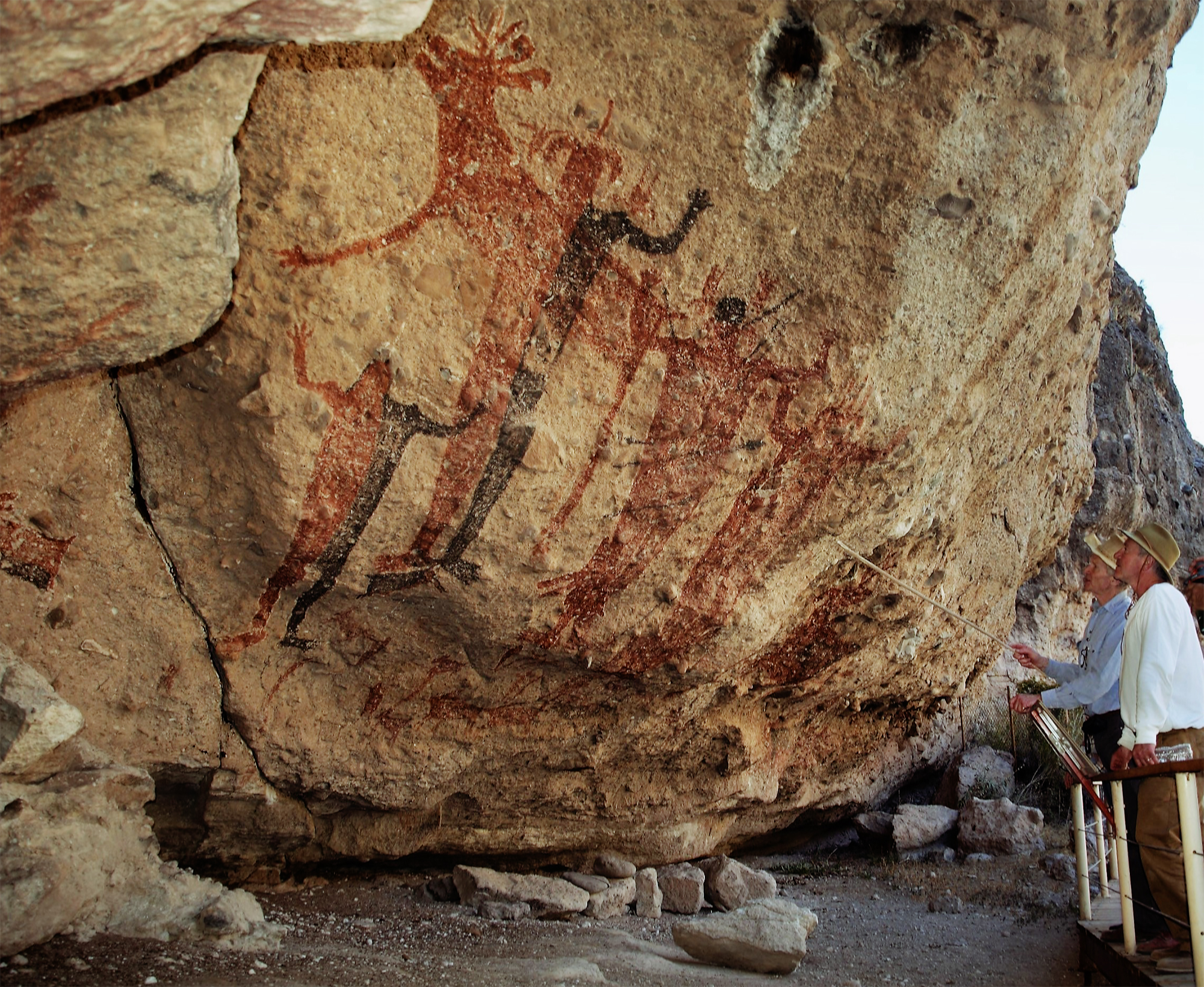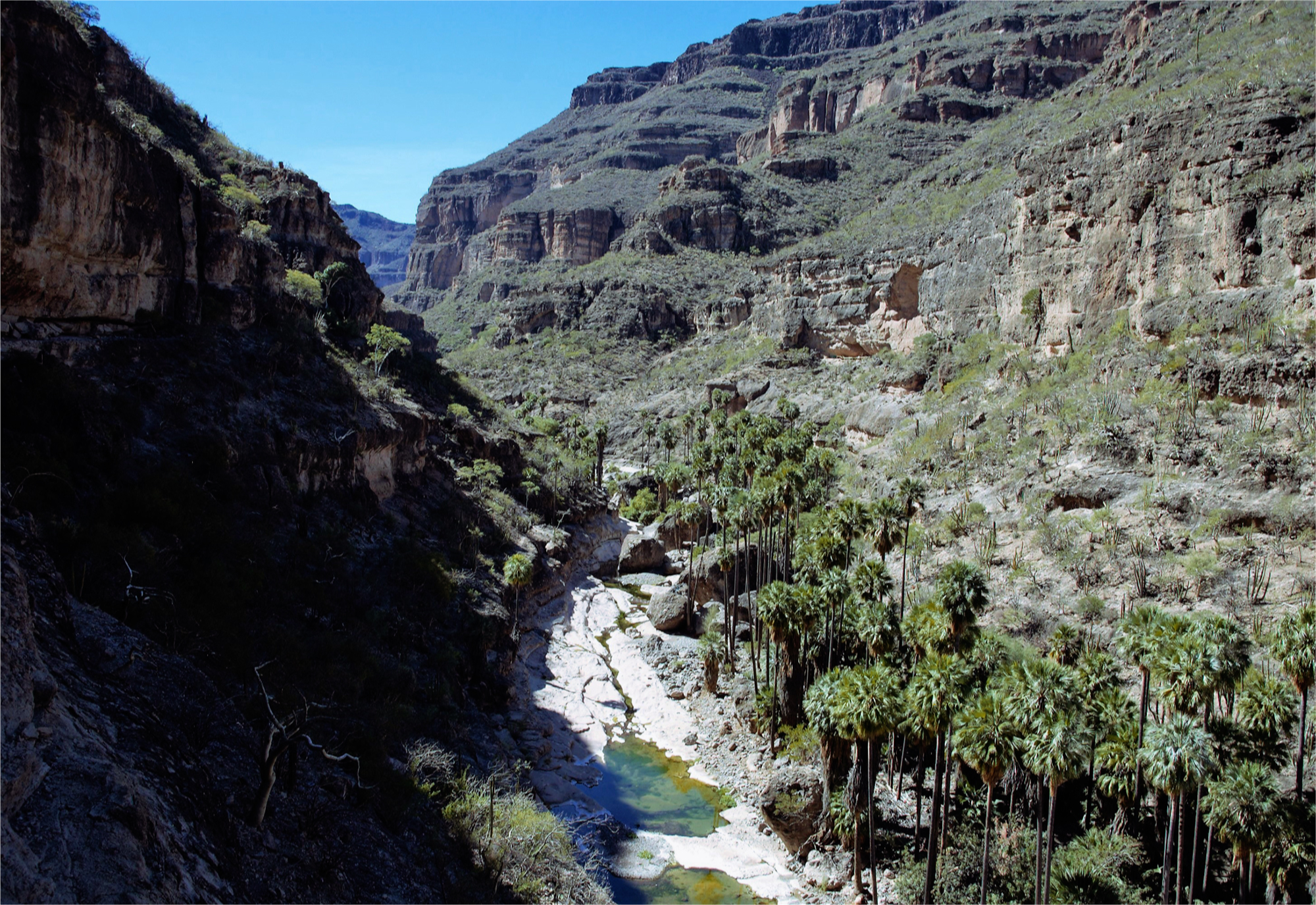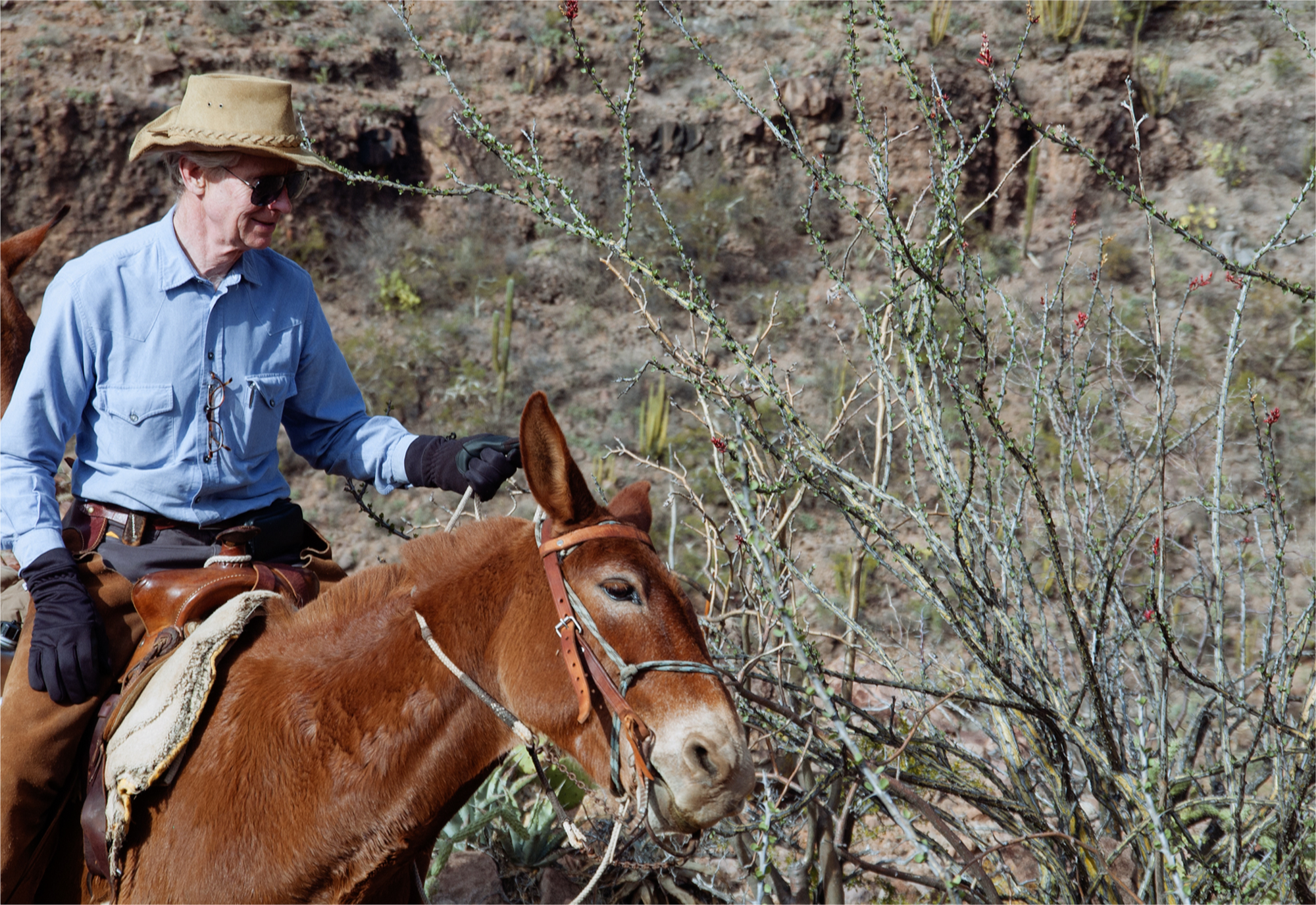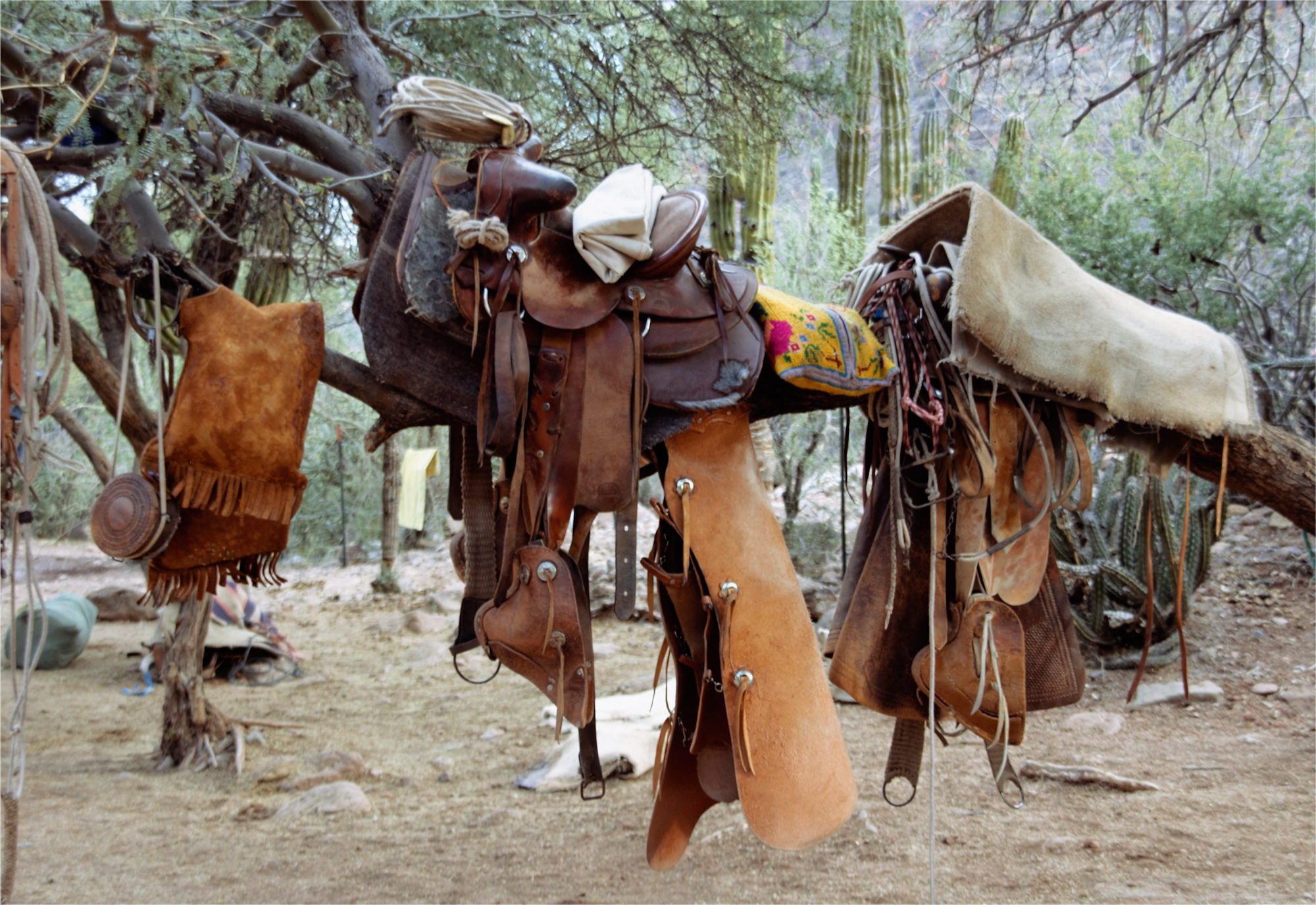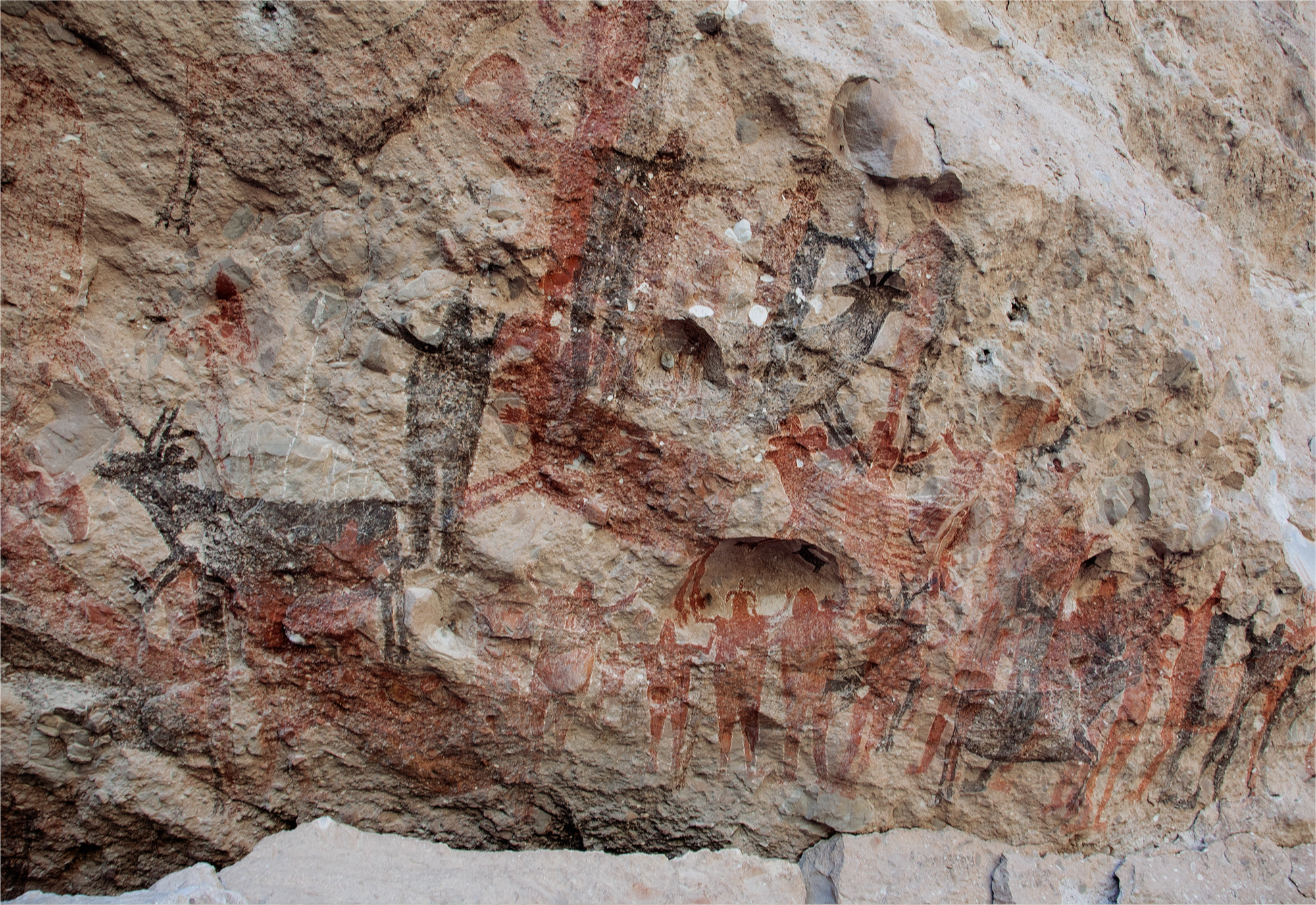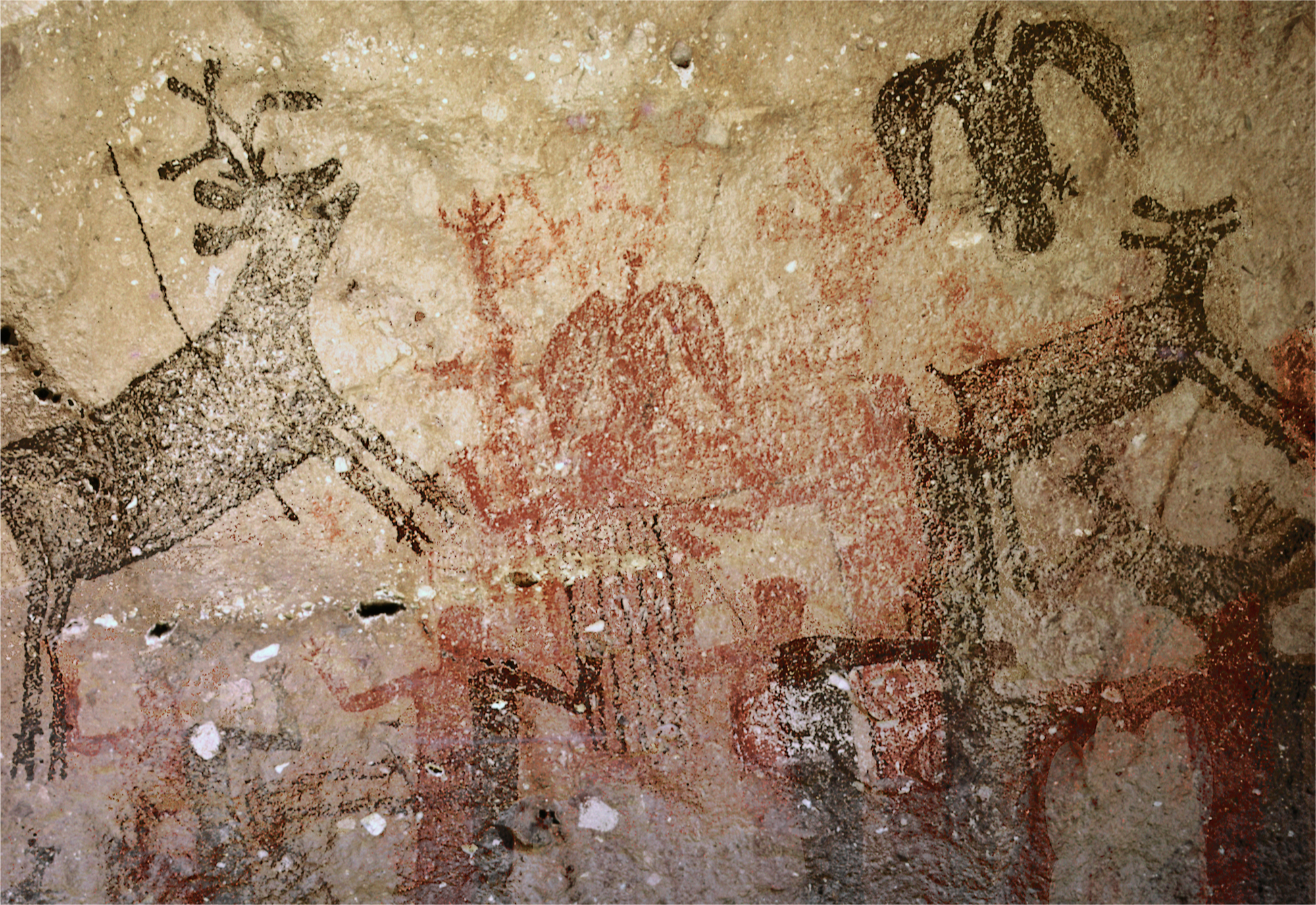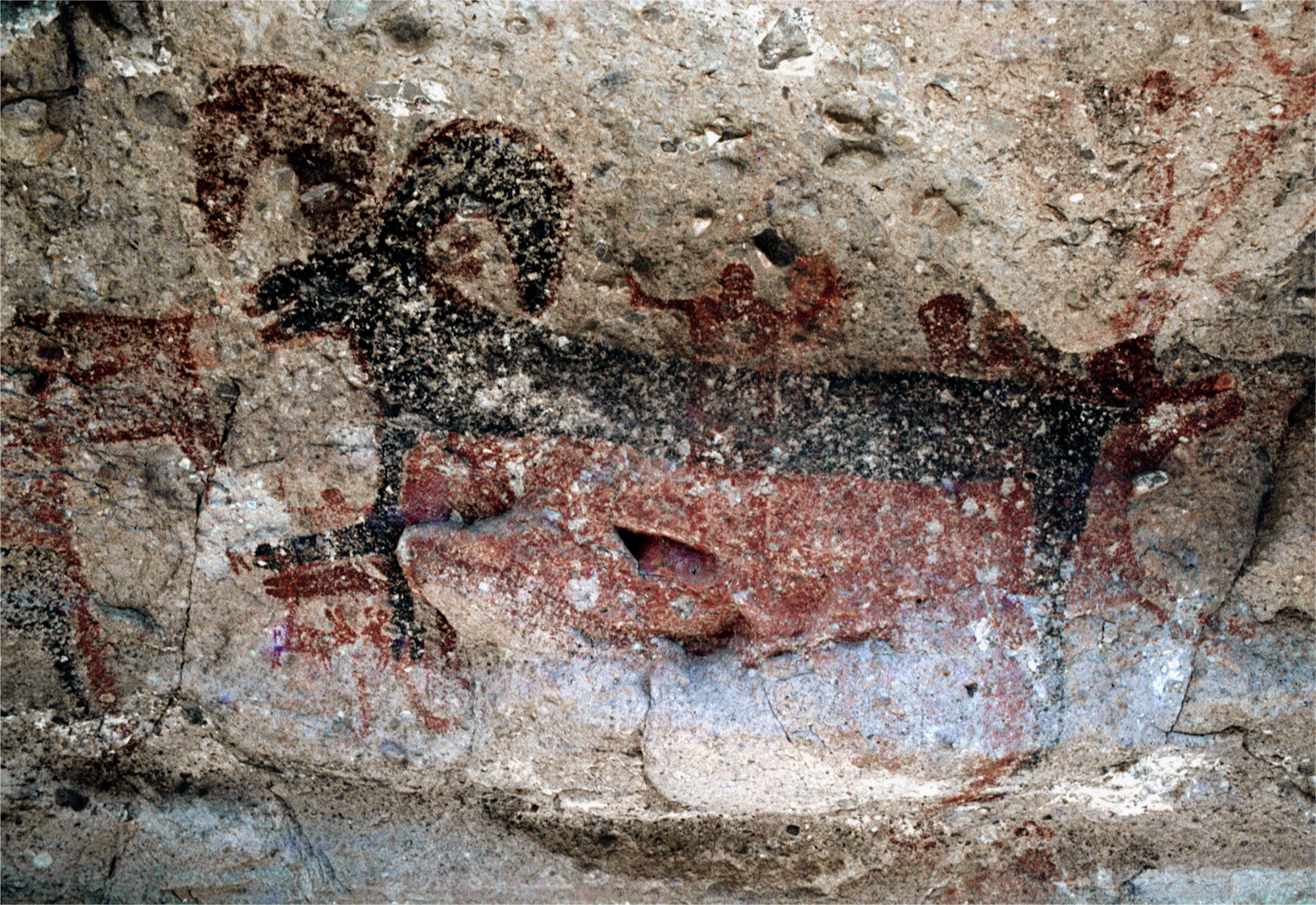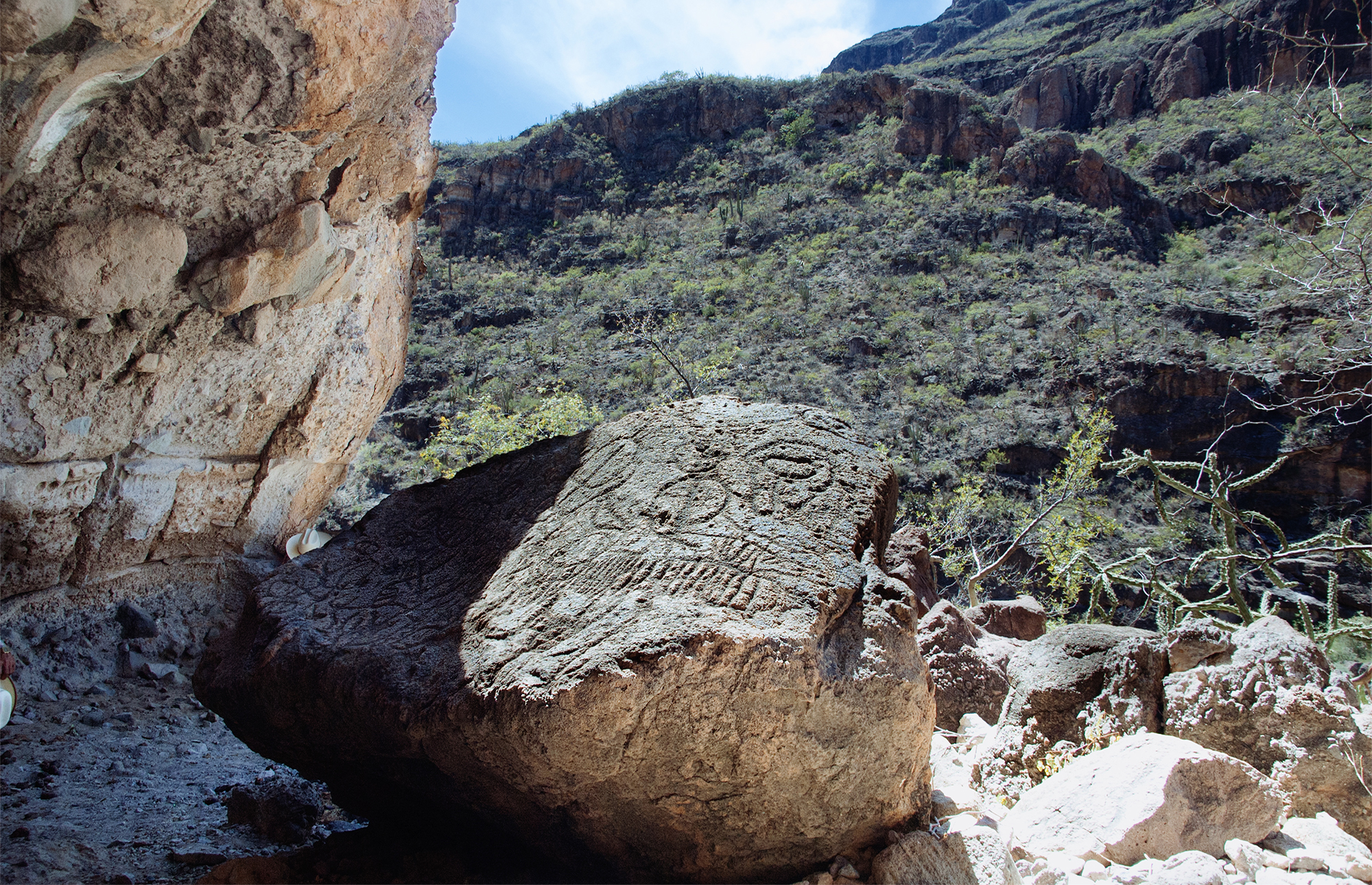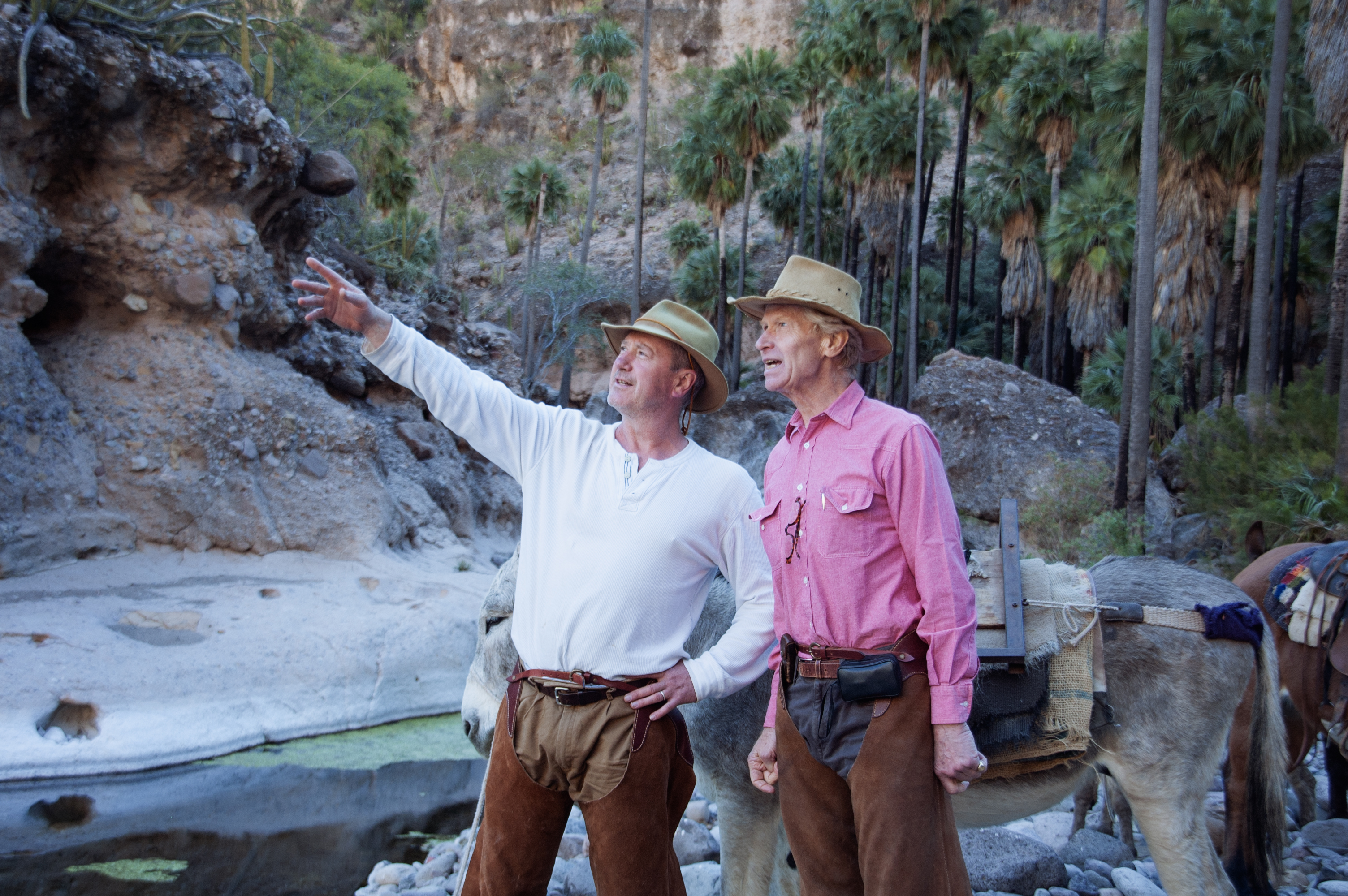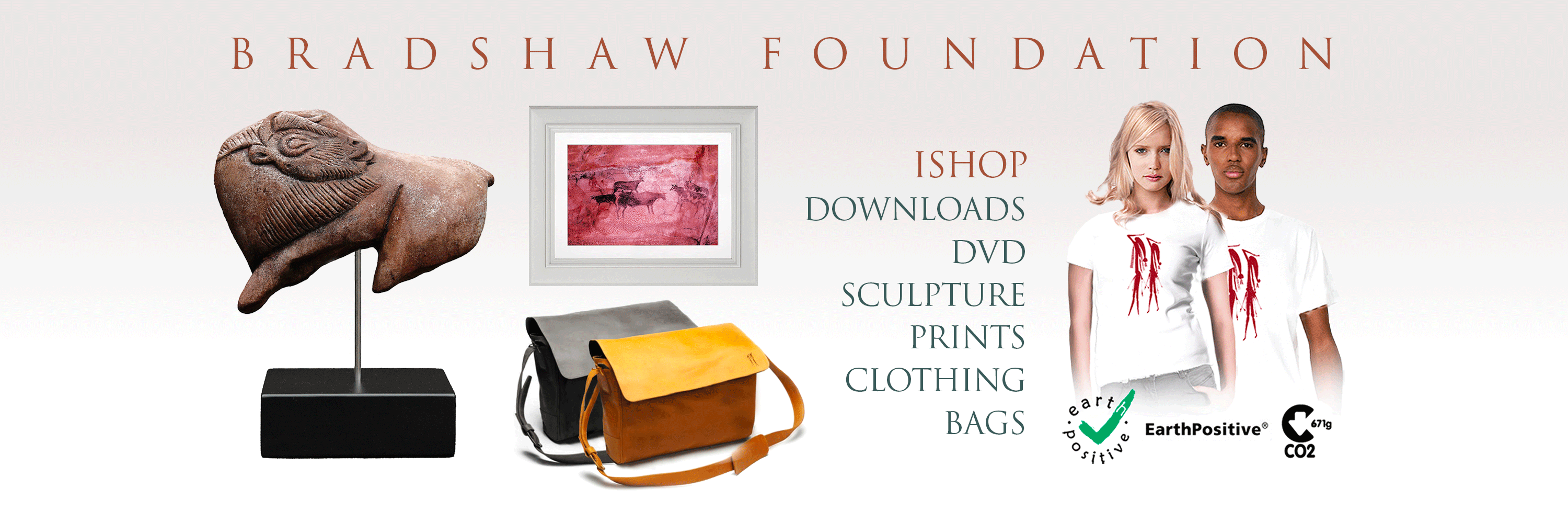
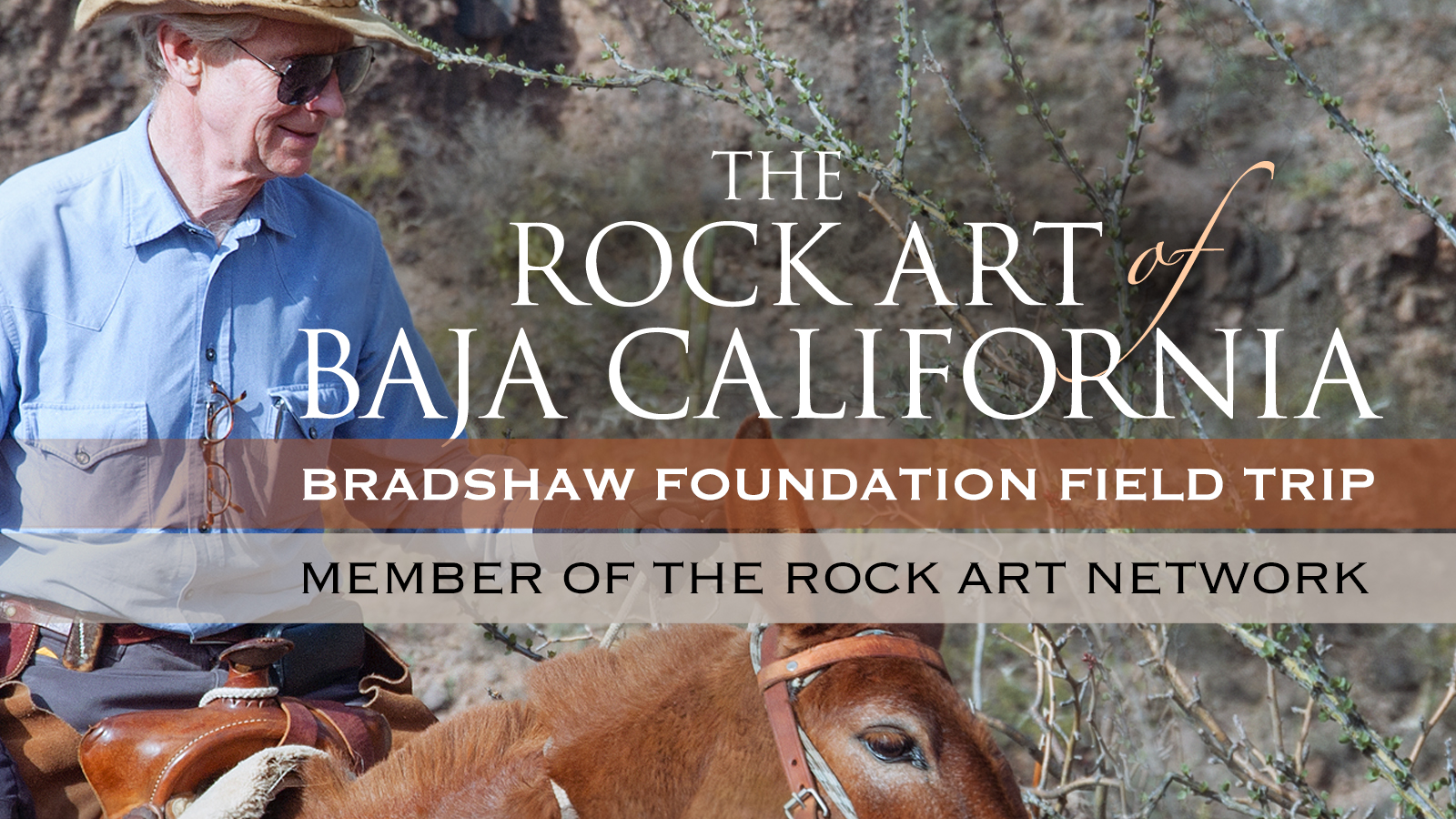
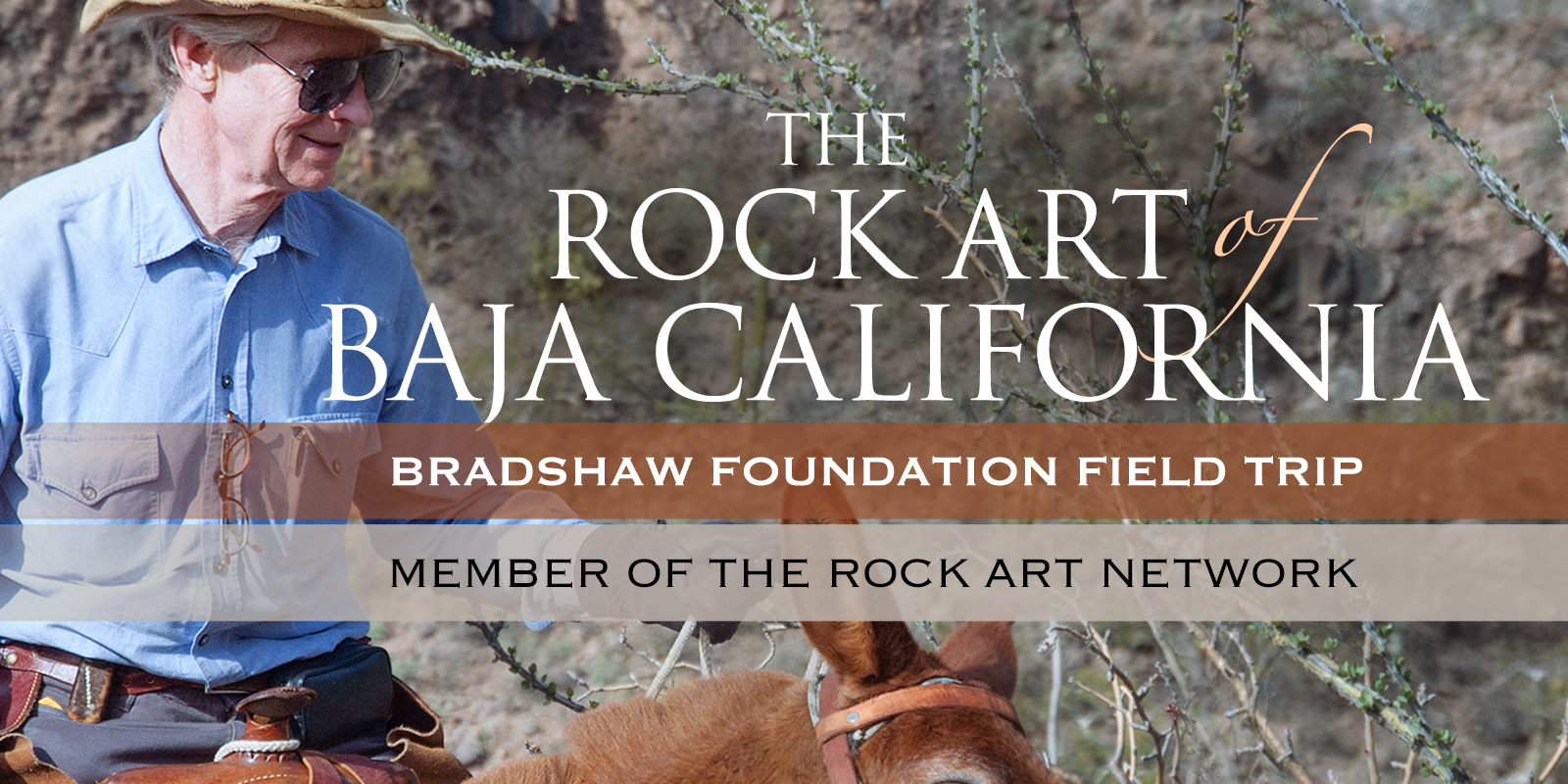
Participants: Damon de Laszlo, Peter Robinson, Dr Alan Garfinkel Gold, Ryan Gerstner, Ron Smith and Laurie Gilmore.
The Bradshaw Foundation mounted an expedition in March 2018, inviting representatives from the California Rock Art Foundation [CRAF] – Dr Alan Garfinkel Gold, Ryan Gerstner and Ron Smith.
The expedition was preceded by a meeting at the Getty Centre in Los Angeles between the Getty Conservation Institute and the Bradshaw Foundation. The meeting discussed, firstly, the establishment of an international Alliance of professionals and rock art site managers to enable the exchange of information and to work together, and secondly, to reach the public and new audiences by disseminating information of different kinds and at different levels via the Bradshaw Foundation. The Getty Conservation Institute and the Bradshaw Foundation have agreed to collaborate to solicit a steady flow of content via the Alliance for outreach.
Laurie Gilmore, a resident of Los Angeles, also attended the meeting as a future liaison between the Bradshaw Foundation and the Getty Conservation Institute.
The purpose of the expedition was to view rock art sites in the Sierra de San Francisco whilst initiating a formal working relationship with CRAF and Mexico’s National Institute of Anthropology and History [INAH - Instituto Nacional de Antropología e Historia de México]. INAH is the official government body established to carry out scientific research of the rock art as well as establishing and maintaining preservation policies in the region.
The central part of Baja California peninsula is a region of Mexico that houses one of the most spectacular collections of rock art in the country - the Great Murals of the Sierra de San Francisco. The region is geographically insular and it would have kept the native peoples relatively isolated from continental influences, allowing the development of a local cultural complex.
Seven rock art sites were visited and recorded on the expedition: Cueva la Palma, Cueva de las Flechas, Cueva Pintada, Piedra de Chuy [a petroglyph site], Cueva Soledad, Cueva Ratón and Cueva El Palmarito.
The only access into the arroyo San Pablo is by mule, involving a descent of some 1,500 ft. on the traditional Indian trails. Camps were set up each night on the canyon floor.
Within the Sierra de San Francisco there are hundreds of documented rock shelters, many with huge panels with numerous brightly painted figures, for the most part found in a good state of conservation.
The style is essentially realistic, dominated by depictions of human figures and terrestrial and marine fauna, designed in red, black, white and yellow. The paintings are found on both the walls and roofs of rock shelters, sometimes at considerable heights. The rock shelters are often difficult to access. The landscape of the area is another significant attribute; the rock art is clearly ‘embedded’ within the landscape.
The paintings are either monochrome or polychrome. The most common figures are humans and deer, but a variety of other animals, such as rabbits, bighorn sheep, birds, fish, and snakes are also represented. The human images often include stylized headdresses. A minority of human images are shown with sexual characteristics, such as male genitalia or female breasts. A minority of human and animal images are overlain with depictions of projectiles (presumably arrows or atlatl darts). The sheer scale of the painted depictions found in this region of Baja California are noteworthy.
The images are essentially silhouettes, without representational details inside their outlines. Instead, geometrical patterns such as stripes or bands of different colours are used. A front- facing perspective is used for humans, turtles, birds, and most fish, while a lateral perspective is used for deer and most other animals.
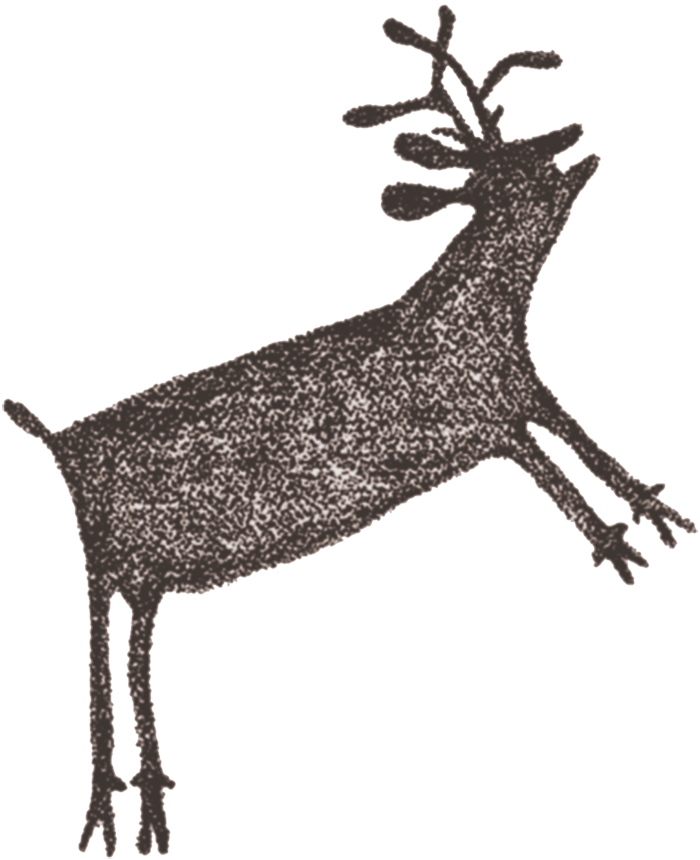
Damon de Laszlo
Bradshaw Foundation Chairman
→ Subscribe free to the Bradshaw Foundation YouTube Channel
→ America Rock Art Index
→ The Rock Art of Baja California
→ Baja On Film
→ California Rock Art Foundation
→ Baja In Search of Painted Caves
→ Baja Great Murals Gallery
→ Sierra de San Francisco
→ Baja 2018 Expedition
→ The Rock Art of the Lower Pecos Canyonlands
→ Color Engenders Life
→ The Rock Art of Arizona
→ The Rock Art of Nevada
→ Coso Sheep Cult of East California
→ Coso Range Rock Art Gallery
→ The Rock Art of Moab Utah
→ The Rock Art of the Oregon Territory
→ RAN - USA Colloquium 2018
→ Removal & Camouflage of Graffiti
→ Graffiti Dates & Names
→ Vandalised Petroglyphs in Texas
→ Preserving Our Ancient Art Galleries
→ Bradshaw Foundation
→ Rock Art Network
